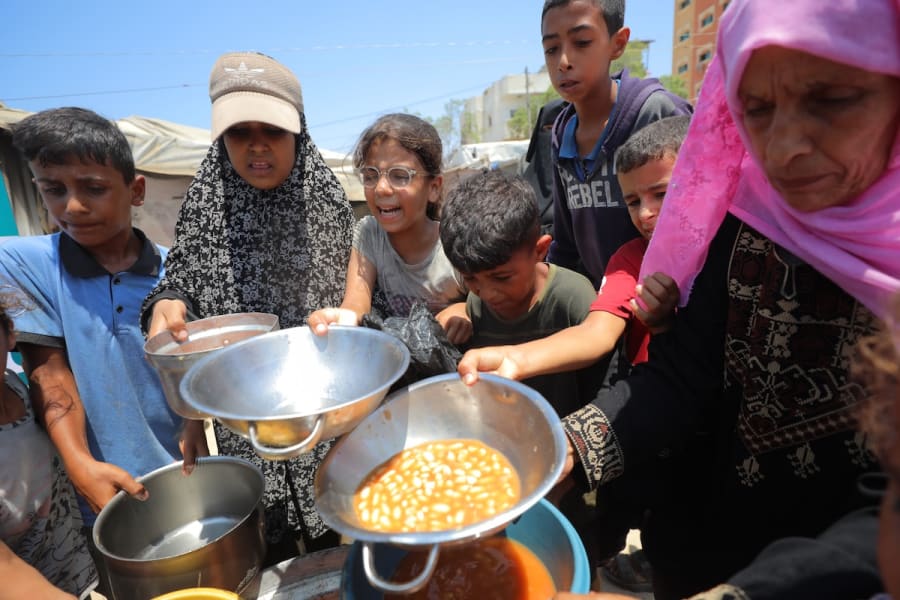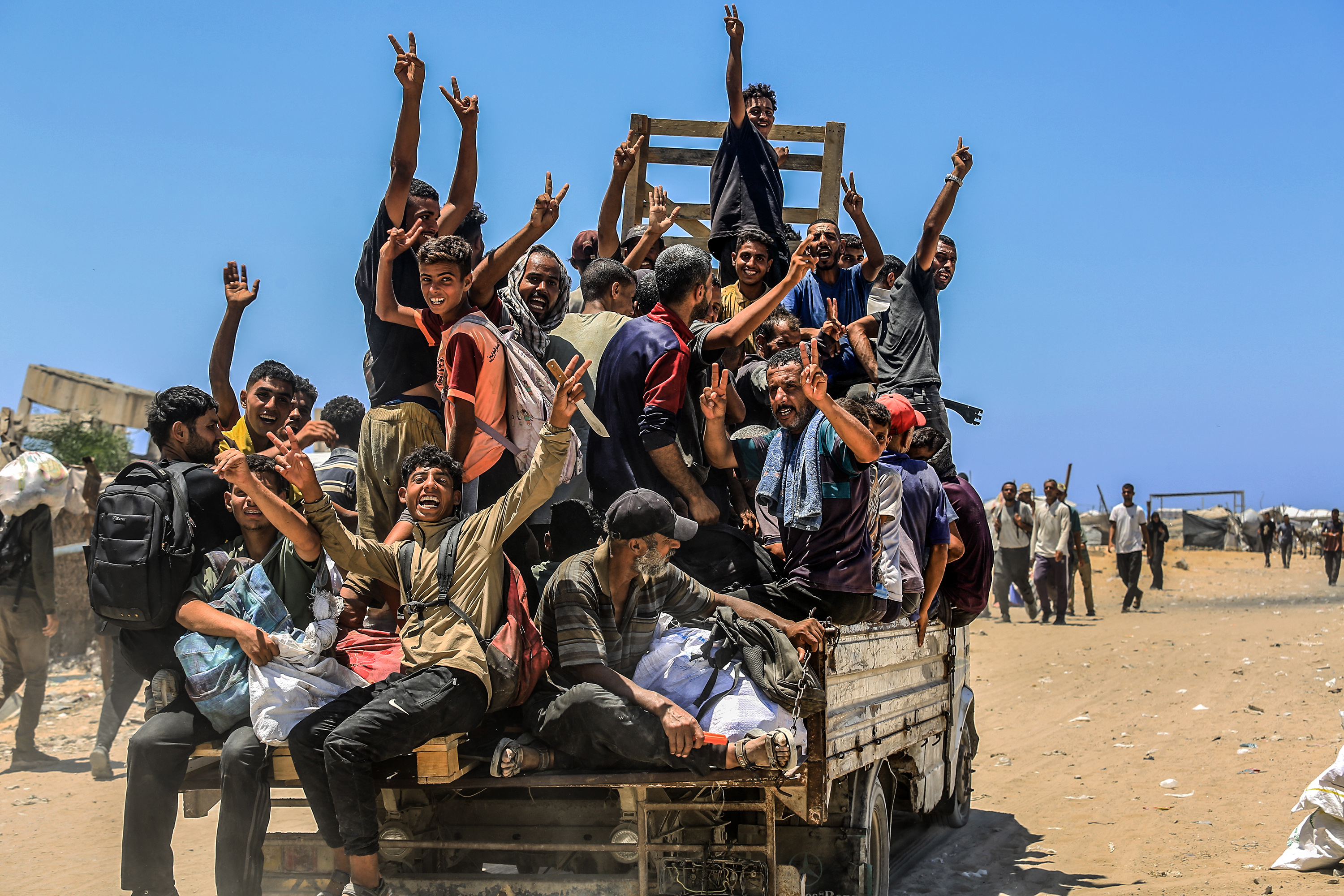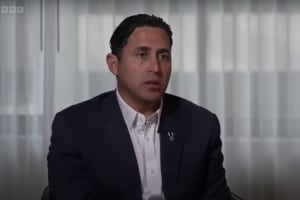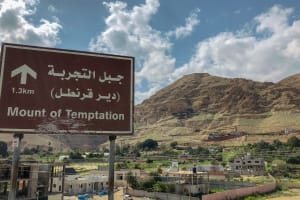Are loaded labels like ‘famine’ and ‘genocide’ undermining peace?

When you use words like "famine" and "genocide" too casually, you shut down the possibility of having an honest conversation about what needs to happen next.
These are not just emotional buzzwords – they have specific legal definitions and grave historical weight. Misusing them distorts the reality on the ground and derails any effort to resolve the conflict.
Take the current war between Israel and Hamas.
As soon as accusations of genocide are hurled about or headlines declare a famine, the space for serious policy discussion collapses. Israel, faced with growing international pressure, digs in and defends its actions. Hamas, emboldened by global outrage, sees no reason to compromise or agree to a ceasefire. And the war drags on. More civilians suffer. More lives are lost.
What is genocide?
The term "genocide" has a specific legal definition that should not be thrown around carelessly.
It was formally codified in the Convention on the Prevention and Punishment of the Crime of Genocide, adopted by the United Nations General Assembly on December 9, 1948.
This agreement, which followed the horrors of World War II, defines genocide as any act carried out with the intent to destroy, in whole or in part, a national, ethnic, racial, or religious group. Nearly every UN member state has ratified the convention, making it one of the foundational documents in international humanitarian law.
Applying the term "genocide" to Israel's current war with Hamas is misleading – unless one assumes that Israel is targeting the Palestinian people as a whole, rather than a designated terrorist organization. That's the argument made by Lt.-Col. (res.) Maurice Hirsch, director of the Initiative for Palestinian Authority Accountability and Reform at the Jerusalem Center for Security and Foreign Affairs.
"If you actually accept that Israel is fighting against a terror army and has killed mostly the terror army, then it's not genocide," Hirsch told ALL ISRAEL NEWS.
He pointed to available data – including figures released by Hamas – showing that the ratio of civilian to terrorist deaths is close to 1:1. In the context of urban warfare, that is extraordinarily rare. Typically, in battles fought in densely populated civilian areas, the ratio skews far higher, with three to nine civilians killed for every combatant.
The charge of genocide, however, is not new. The Palestinians have repeatedly accused Israel of committing genocide since the state's founding in 1948. The claim resurfaces during every major Israeli military operation against Hamas, including the two most recent battles in 2014 and 2021.
However, the Palestinian population continues to grow.
According to World Bank data, 2.2 million Palestinians lived in the West Bank and Gaza in 1993, when the Oslo Accords were signed. By 2014, that number had risen to 4.1 million. In 2021, it reached 4.9 million. Today, the population stands at around 5.2 million.
What about famine?
Unlike genocide, there is no universally accepted legal definition of famine. Hirsch explained that famine is typically assessed case-by-case, focusing on whether the population has enough food to meet basic nutritional needs.
By that standard, Hirsch argued, it is "undeniable" that sufficient food has been entering the Gaza Strip.
Since the Hamas-led massacre on October 7, 2023, Israel has facilitated the transfer of more than 1.8 million tons of humanitarian aid into Gaza, including over 1.4 million tons of food, according to official data from COGAT (Coordinator of Government Activities in the Territories).
In addition, since May 26, 2025, the Gaza Humanitarian Foundation has been active in southern Gaza, distributing at least 98 million meals to residents in that area. Israel's military operations have mainly avoided this central region. Hence, Hirsch noted, "you see the pictures going around of marketplaces filled with food, restaurants filled with the best of the meats, the chickens, the chocolates that you can find."
The real logistical challenge lies in northern Gaza, where aid distribution has been more difficult.
The United Nations is responsible for delivering much of this aid, but Israel has already approved its entry. According to Hirsch, the UN's own June 2025 report reveals that 95.7% of the assistance has been intercepted – either by desperate civilians taking it before it reaches distribution centers, or by Hamas, which seizes supplies for its use.
"The UN has been offered support by Israel to ensure that the aid actually gets to the distribution sites, but the UN has refused," Hirsch said in a related video. "If their goal is truly to provide food for the Gazans and prevent starvation, why won't they work with independent aid providers like the Gaza Humanitarian Foundation? Why won't they accept Israeli security support to ensure the aid reaches the people who need it?"
Another telling sign that the famine accusation may be misplaced is that most of the widely circulated images show only children suffering from malnutrition, not adults. That raises a complex but essential question: Are the adults taking food for themselves, or is it possible that people are not starving?
"Gaza is the only place from where you see pictures going around the world of children eating sand," Hirsch said. "Yet you don't see pictures of adults suffering from malnutrition."
According to Hirsch, these images are part of a larger propaganda campaign orchestrated by the same Hamas leadership that has been stealing aid from the UN and reselling it at exorbitant prices.
"Hamas sees the food as the way to impoverish the people, subjugate the people, demonize Israel," he told ALL ISRAEL NEWS, "and then get rich or keep a flow of income for them(selves) coming in so that they can pay their new recruits."
The claim of famine has been leveled against Israel since spring 2024. But if a genuine famine had gripped the Gaza Strip for over a year, wouldn't we be seeing mass deaths from starvation by now?
The only reports of such deaths come from the Hamas-run Gaza Health Ministry – a body whose data has repeatedly been proven unreliable.
This is not to say there is no suffering. Many Palestinians are indeed hungry, and Israel is not without responsibility for the humanitarian conditions in Gaza. Twenty-two months of war have left much of Gaza in ruins and displaced thousands of people.
More can and should be done to improve the situation on the ground as the war drags on.
But it is crucial to name the problem accurately. If food distribution is failing in parts of Gaza, that must be addressed by improving logistics, working with credible partners, and ensuring aid gets where it's needed.
If civilians are being killed in Israeli strikes or used as human shields by Hamas, then measures must be taken to protect them better. Civilian harm should be minimized, but context matters.
The international community and the media have a responsibility to use words precisely. Misusing terms like "genocide" and "famine" doesn't just inflame tensions – it strengthens Hamas' grip on power, undermines peace efforts, and ironically, may increase the risk of a real famine or genocide down the road.
Hyperbole doesn't save lives. Accuracy might.

Is All Israel News’ faithful reporting important to you? Be part of it—help us continue by becoming a $5/month supporting partner.
.jpg)
Maayan Hoffman is a veteran American-Israeli journalist. She is the Executive Editor of ILTV News and formerly served as News Editor and Deputy CEO of The Jerusalem Post, where she launched the paper’s Christian World portal. She is also a correspondent for The Media Line and host of the Hadassah on Call podcast.
You might also like to read this:

















